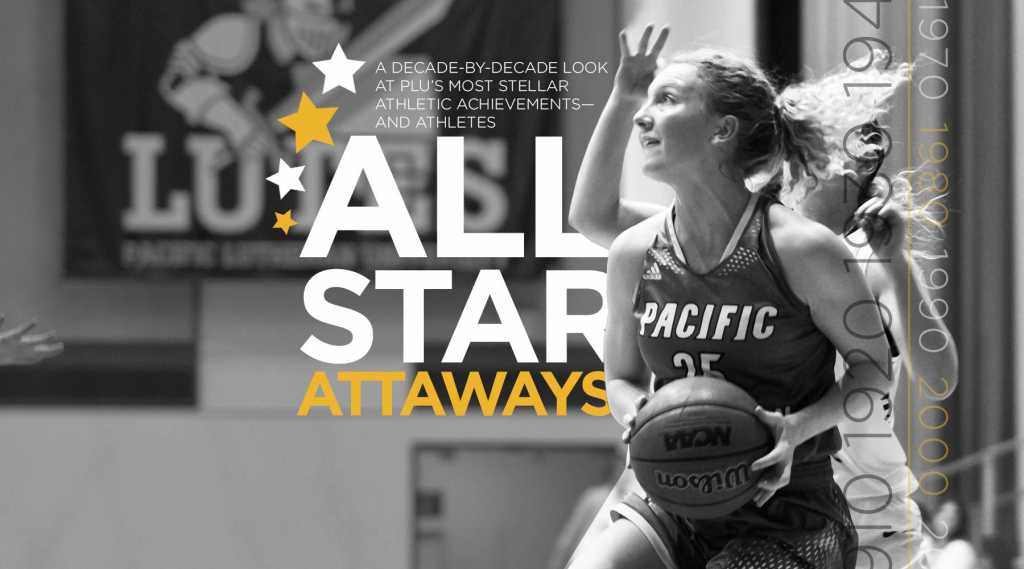Page 323 • (3,243 results in 0.091 seconds)
-
a few people of color in the classroom.” Jes Takla, director of residential programs, said it’s important to use students’ first names to build a sense of belonging. Authentic listening must be the goal. “Listening is the act of receiving the information with an open heart, open ears and an open perspective,” she said. “Being heard is the acknowledgment that comes back.” FACING MICROAGGRESSIONS Many people from diverse backgrounds at PLU recognize the systemic challenges that minority groups
-
student scholarships, leadership development programs and faculty recruitment. Who participates?Alumni, parents, friends, PLU faculty and staff, corporations, foundations and congregations all contribute to the PLU Fund and aid in the success of PLU students. Is there a minimum contribution amount?There is no minimum contribution to the PLU Fund. Supporting student scholarships is a collective effort, and your gift of any amount is meaningful. You can make a difference for current and future Lutes
-
Account. The easiest way to pay is to use a secure wire transfer. PLU works with a company called Flywire. There is no fee associated to this transaction and you can pay using any currency.Review Orientation Schedule New Student Orientation New Student Orientation (NSO) is 8-9 days long in Fall and 2-3 days long in Spring. The first part of NSO is specially designed for international students. For the rest of NSO, you will attend programs as a first-year student, a transfer student, a graduate student
-

& 1990s: The Era of Dominance Headlined by national championships in football (1980, ’87, ’93, ’99) volleyball (’88, ’92), women’s soccer (’88, ’89, ’91), softball (’88, ’92) and women’s cross-country (1988), the 1980s and 1990s were the most successful sporting decades in PLU history. Lute tennis, swimming, track, golf and men’s soccer programs also enjoyed extended periods of excellence. Six school years of this era featured 20 Lutes named first-team All-Americans (’85, ’86, ’90, ’91, ’95, ’96). In
-
design characterizes the wide-ranging nature of James Holloway’s interests. Dr. James Holloway (1960-2001) was the University Organist and Professor of Organ and Church Music at Pacific Lutheran University where he served as a studio teacher, musicologist and choral conductor. He created the Mentorship Program for Vocations in Church Music at PLU and taught in the Honors and Freshman Experience programs. A mentally unstable assailant murdered Dr. Holloway on campus in 2001. The artist, Kathryn Wold
-
Publishing Triangle. As of 2016, he serves as critic-at-large with the L.A. Times and sits on the Board of Trustees of the Association of Writers and Writing Programs (AWP).April Ayers LawsonApril Ayers Lawson is the author of Virgin and Other Stories (Farrar, Straus and Giroux; and Granta Books), which in addition to being named a best book of the year by Vice, BOMB, Southern Living, and Refinery29 is also being translated for publication in Italy, Germany, Norway, and Spain. She has received the George
-
.” Jes Takla, director of residential programs, said it’s important to use students’ first names to build a sense of belonging. Authentic listening must be the goal. “Listening is the act of receiving the information with an open heart, open ears and an open perspective,” she said. “Being heard is the acknowledgment that comes back.” FACING MICROAGGRESSIONS Many people from diverse backgrounds at PLU recognize the systemic challenges that minority groups face in society and on the university’s campus
-
climbing adventure. Everyone is welcome to attend, especially folks who have never climbed before! RSVP here! Space is limited to the first 15 people. 9:00AM-1:00PMMeet in front of Harstad at 9am HUNGRY? Optional: Brunch (Look for the Lute Guides if you want somebody to sit with). If you don't have a meal plan, find a Lute Guide in The Commons to get a meal ticket!9:30AM-12:30PMThe Commons Trinity Lutheran Church Service Optional: Meet up with University Pastor, Jen Rude, to check out Sunday services
-
professor, researcher, clinician and administrator who chairs the Division of Psychology at the University of Texas Southwestern Medical Center in Dallas. He’s authored nearly 200 peer-reviewed articles, contributed to 35 books and written two of his own. But he is perhaps best known for his work in sports neuropsychology. He oversees concussion testing programs for the Dallas Cowboys (NFL) and the Dallas Stars (NHL). Both sports leagues require their teams to have a consulting neuropsychologist on
-

little less difficult for one person. Maybe that’s just walking through this journey of life with them and being there so they don’t have to be alone. To Learn More or Ask Questions About PLU’s Healthcare-Focused Majors and Academic Programs, Please Visit: School of Nursing | School of Nursing Facebook Pre-Professional Health Sciences | Department of Biology Division of Social Sciences | Department of Psychology Zach Powers '10 Zach Powers '10 worked as PLU's media and content manager until April
Do you have any feedback for us? If so, feel free to use our Feedback Form.


